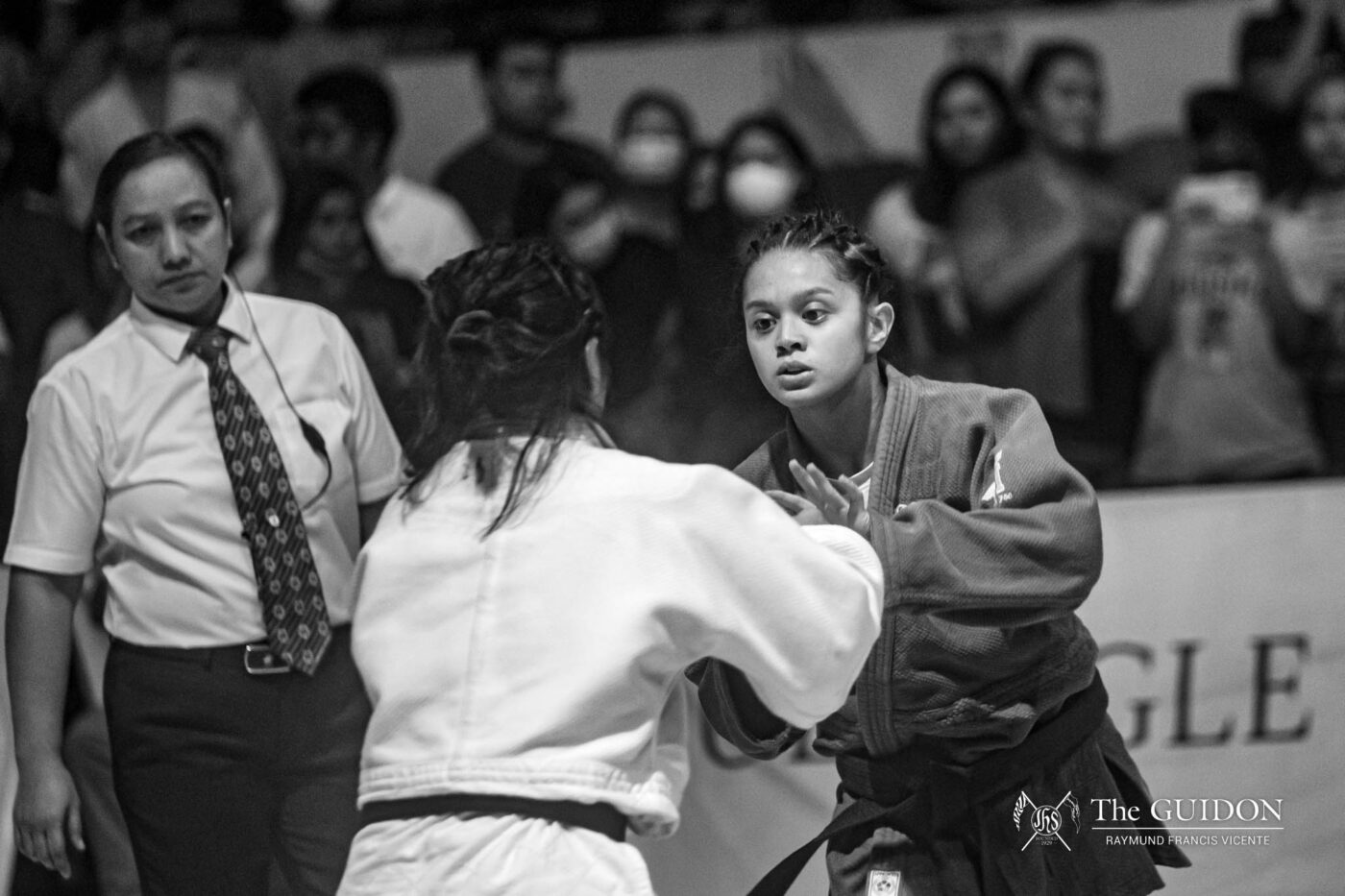WHY IS it a compliment if a woman receives the comment, “Para kang lalaki maglaro! (You play like a man),” but an insult if a man is described as someone who plays like a girl?
Female athletes have their backs to the rest of the pack as they take the lead in breaking biases and setting standards for Philippine sports. At the collegiate level, the University Athletic Association of the Philippines is an arena for stories of empowerment for young women in sports.
Last May 2022, Ateneo did its part in the fight against gender biases in sports by bestowing the “Blue Eagles” moniker to all teams. Prior to this, the said moniker was exclusively tagged to the Ateneo men’s sports teams, while all Ateneo women’s sports teams were distinguished from their male counterparts by having the word “Lady” in their titles.
According to University President Roberto C. Yap, SJ, “[The change to Blue Eagles] is a recognition of the fact that each of our student athletes, whatever their sport or year level, represents the mens sana in corpore sano (sound mind in a sound body) ideal: excelling in the classroom and in the sporting arena.”
This way, Ateneo’s generalization of the “Blue Eagles” not only promotes equality among all sports but aims to empower both men’s and women’s teams equitably.
Although we have come a long way from an era of exclusivity when sports was considered “not for girls,” there is still much work to be done. Looking at the gender-biased disparity in sponsorships and prize money, positions in the coaching force, and opportunities to go professional—the call to eliminate misogyny in the sports industry is still as urgent as ever.
Continuing the spirit of International Women’s Month last March, three female Ateneo athletes share their stories of transforming the phrase “play like a girl” from a derogatory phrase to an honorable crown of intellect, strength, and femininity.
Herstory in the making
Women in esports don’t have it easy. Call of Duty Mobile (CODM) player Coleen “Cols” Pile claims that in her specific game, the future for female gamers is close to nothing at the moment. A big factor at play is the deeply-rooted stereotype that men are more skilled and more competitive players than women.
Pile shares, “I’d see some instances na if the team would choose between a girl and a boy, they would choose a boy. [There’s a] mindset na mas malakas lang talaga ‘yung lalaki [and] minamaliit yung girls.”
(I’d see some instances that if the team would choose between a girl and a boy, they would choose a boy. [There’s a] mindset that men are stronger [and] girls are being belittled.)
The male-biased stereotype in gaming also manifests in the use of language. Pile admits to receiving comments such as “Para kang lalaki maglaro (You play like a man),” and “Ang galing mo para sa babae (You’re good for a girl).”
Upon further scrutiny, beneath these backhanded compliments lies the implication that men are the standard in gaming. However, Pile believes that if girls were given ample or equitable opportunities to showcase their excellence, men in esports would have no choice but to share the spotlight in the gaming arena.
Thus, in the esports scene, to play like a girl means to constantly combat long-standing stereotypes while the struggle to earn a respected space in the industry continues. Despite the derogatory meaning attached to playing like a girl, Pile expresses a hopeful attitude as she confidently says it can be changed. In a male-dominated industry like esports, there is no question that women can be at par with their male competitors.
Smashing stereotypes
From playing in summer sports clinics when she was seven years old to competing for the Philippine National Team at the age of 16, Althea Ong proudly says that the sport of tennis has always felt empowering. “Tennis is something that made me who I am today. It’s more of a mental game. It made me as a person and as a woman,” Ong states.
In tennis, there is an apparent difference in men’s and women’s manner of playing the sport. Men’s tennis rewards strength and superior physicality while women’s tennis operates like a mind game. According to Ong’s experience of women’s tennis, “They really plan it out. You would see them running [and doing] more rallies. Because in women’s tennis, it’s a shorter [match] format. But, the matches are longer [because] they hit more balls.”
For Ong, this is the main reason why she believes women should never be compared to men, especially in tennis. Getting comments like, “You hit like a man,” and “You hit harder than some male players” only perpetuates the stereotype that sheer power is all one needs to excel in tennis. Instead, it is crucial for tennis players to consider other factors like shot placement and in-court tactics in order to best their opponent.
Thriving in a sport that requires mental finesse above everything, Althea asserts that to play like a girl is to play smart. She said, “I think playing like a girl should be a compliment even to guys. It should apply to everyone in terms of decision-making and strategy. It should not mean that women play weak just because they play like a girl.”
Ruling the field
Raised in a family of athletes, Sophia Carsi Cruz first set foot in the softball field at the age of nine and has not stopped playing since. Aside from the brutal games she endures, resisting misconceptions that downplay women invariably comes with being in the sport.
Sophia is no exception to receiving remarks like “You could compete with the boys” or “You don’t care how you look when you play.” Although these comments are meant to express praise, Sophia took them as insults because of the sexist implications that underlie them.
For one, female athletes being told that they can “compete with the boys” implies that men are the standard of athletic excellence. On the other hand, being told to “care about” their looks while playing reinforces the idea that women should prioritize vanity over competitiveness. Ultimately, these stereotypes embedded in the sports discourse invalidate the generations of hard work done by women who came before.
Thus, changing something as simple as language is a big leap toward empowering women in sports. By not having to conform to male standards, Carsi Cruz wishes to rewrite the script by accepting that playing like a girl is “embracing femininity”—no matter what it looks like.”
She proudly adds, “If you’re a girl, you’re gonna play like a girl. You don’t even have to be biologically female. If you define yourself the way that you want and you play like a girl, that’s all it is. [It’s about] embracing femininity and turning it into power.”
Female athletes are deserving of the sports industry’s applause, not just for the awards they bag home, but most importantly, for the path they continue to carve for all women in every industry. As they stand their ground in the struggle for equality in sports, women continuously prove that to play like a girl is to play like a champion.







